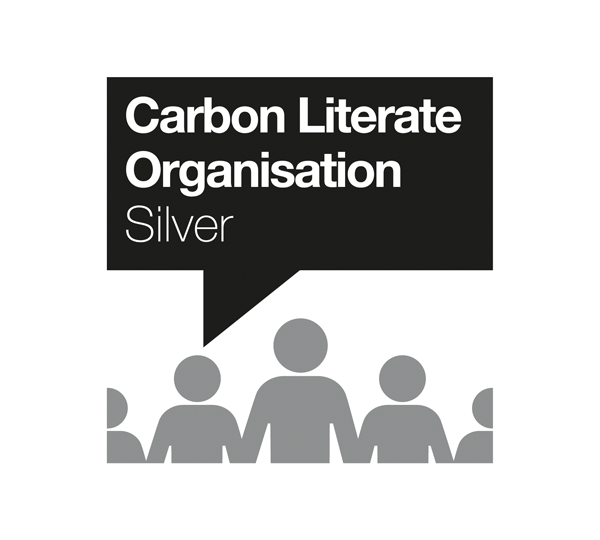
Useful Simple Trust has today announced that it has been accredited as a Silver Carbon Literate Organisation (CLO), highlighting the organisation's dedication towards tackling climate change, reducing its organisational carbon emissions, and its commitment to working towards a lower-carbon future.
Carbon Literacy is defined as, “An awareness of the carbon dioxide costs and impacts of everyday activities, and the ability and motivation to reduce emissions, on an individual, community and organisational basis,” and revolves around a day’s worth of learning and action on climate change.
Climate action is an area that unites all Useful Simple Trust brands and is at the heart of our 'Get Set Zero' strand. Therefore, in 2021, carbon literacy was identified as a key skills area that all employees needed to maintain to excel in their respective roles. This is further to the Trust achieving its purpose-led mission to trailblaze within the built environment.
A CLO is an organisation that has been accredited by The Carbon Literacy Project as being ‘culturally Carbon Literate’; maintaining a substantial proportion of its workforce as Carbon Literate and demonstrating its Carbon Literacy through its organisational behaviour. CLO accreditation is a tiered system with Bronze, Silver, Gold, and Platinum levels, requiring increasing levels of commitment to action on climate change and creating a low-carbon culture.
To become accredited as a Silver Carbon Literate Organisation, the Trust trained 44% of staff from across our four brands, with the remainder set to participate in Cohort 2 in early 2024. Using bespoke Carbon Literacy training materials, we co-created our organisational carbon action plan and routemap to net zero, which we are now implementing, as part of our commitment to decarbonising our business activities.
Carrie Behar, Head of Sustainability at Useful Simple Trust, commented: “We recognise that our greatest asset is our people. By investing in Carbon Literacy training and accreditation, we are empowering them to further our mission to be a force for good in the sustainable and regenerative transformation of the built environment.”



